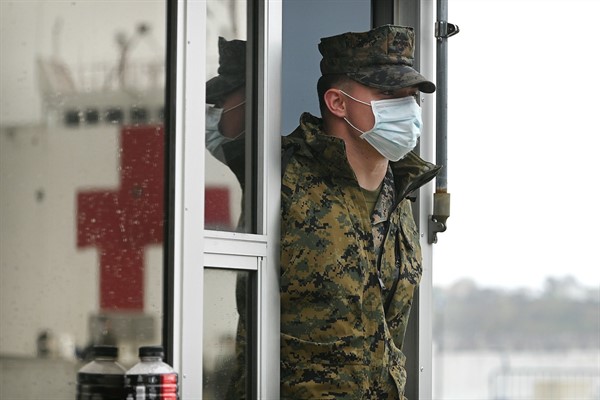The twin global emergencies of COVID-19 and climate change are forcing the U.S. foreign policy establishment to reassess its traditional conceptions of national security. According to a still dominant paradigm, the gravest dangers the United States faces emanate from adversaries with sufficient military capabilities to attack the nation and its allies or, at a minimum, thwart its political and economic objectives.
These threat perceptions expanded dramatically following 9/11. After a handful of jihadists armed with boxcutters inflicted a grievous wound on the U.S. homeland, transnational terrorists joined geopolitical rivals and rogue states in the pantheon of security threats. But the “violence paradigm” still prevailed.
That is starting to change, as the dangers of pandemic disease and global warming become clear and present. COVID-19 has already infected more than 4.3 million people and killed more than 300,000 worldwide. More Americans have died from the coronavirus than perished in combat during the Vietnam and Korean Wars, combined. Unemployment in the United States has risen to levels not seen since the Great Depression, and U.S. GDP is likely to contract by at least 5 percent in 2020. Hundreds of millions of Americans are in lockdown, a feat no enemy has ever accomplished.

